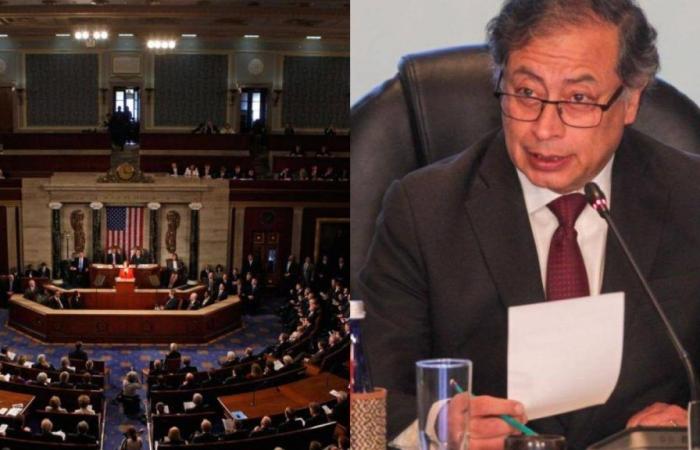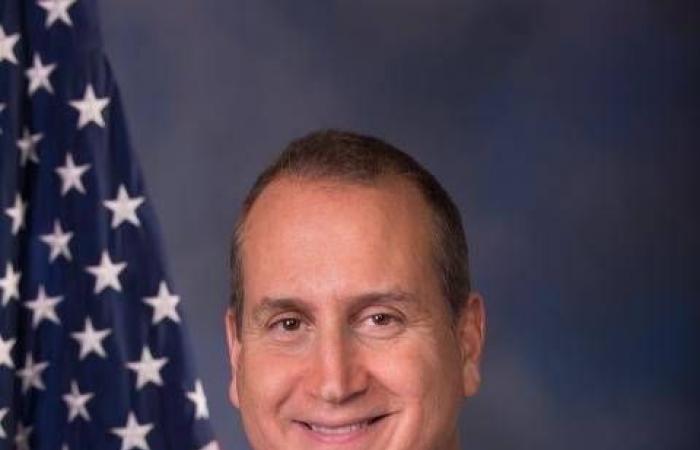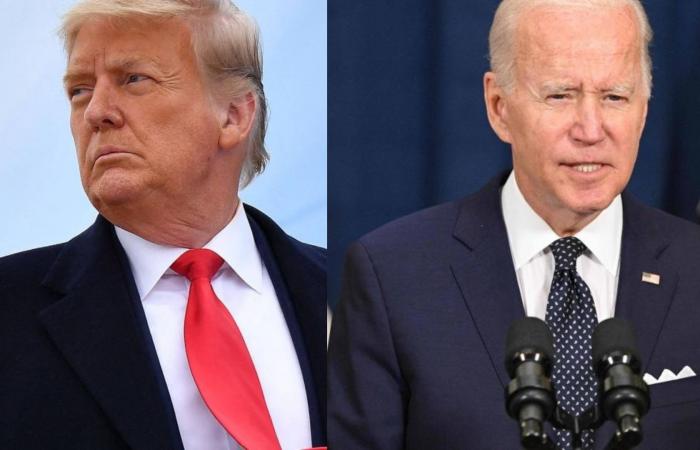Since USA began to finance the Plan Colombia, back in the summer of 2000, Washington has been providing the country between 400 and 500 million dollars annually to contribute to the fight against narcotics.implement development programs, support the peace process, strengthen justice, among other issues.
According to the criteria of
And, despite some differences between Colombia and the United States, it has been primarily bipartisan support. That, however, has begun to change since the arrival of President Gustavo Petro to the House of Nariño in August 2022 and the rise of the Republicans in the House of Representativeswhose control they regained at the beginning of last year.
The latest proof of this was evident this week when the Appropriations Commission of this body approved its budget for fiscal year 2025 – which begins in October 2024. with a deep cut in the funds allocated for the country compared to previous years.
If you are a friend and ally of the United States, then there is support. But if you’re not or you align yourself with their enemies, then you’re not going to like this project.
The project, which still must go through the plenary session and then be approved with the initiative being processed in the Senate, authorized only about 208 million dollars for Colombia, almost half in relation to the 410 million dollars that were approved in March of this year (2024) and that already constituted a 10 percent reduction compared to the resources authorized for 2023.
If it materializes, it would be the smallest amount – and by far – that has been awarded to the country in almost 25 years. In the text accompanying the bill, the legislators explained their decision: “The committee recognizes and appreciates the deep relationship that the United States maintains with the Colombian people. However, the committee remains deeply concerned about President Petro’s policies and his relationships (with other regimes) that are detrimental to the economic and security interests of the United States,” the document said.
Mario Díaz-Balart, Republican legislator from Florida and chairman of the Foreign Operations Appropriations subcommittee – which writes the budget from which the funds for the State Department and all countries in the world come – put it in these terms during the approval process. the initiative: “If you are a friend and ally of the United States, then there is support. But if you are not or you align yourself with his enemies, then you are not going to like this project,” said the Republican, who has never hidden his disagreements with the Colombian president.
Mario Diaz-Balart.
Photo:Private file
That same day, after another hearing at the Capitol, fellow Republican María Elvira Salazar delved into the idea in statements to this newspaper.
“Petro’s priorities are not the priorities of the United States. I was present at the meeting where Díaz-Balart reminded Petro that our country was helping with 500 million dollars and he (Petro) replied that he was not interested in that. She was very despotic and refused help. It was tasteless. We want the Colombian people to prosper, but Petro goes against the people. He wants to change the constitution without going through Congress. That is being a dictator,” Salazar said, recalling the meeting they held with the Colombian president last year in Washington.
What do Democrats say about cutting aid to Colombia?
The position, of course, is not shared by everyone. Brian Nichols, Undersecretary of State for the Western Hemisphere, said in that same hearing that the United States should work with all countries regardless of the ideology of the government in power as long as democracy is respected.
Gregory Meeks, highest-ranking Democrat on the International Relations Committee, also speaking to EL TIEMPO, expressed his firm rejection of the reduction in aid.
“I am totally against it and I will vote to repudiate it. Colombia has been a good ally and we need to continue cooperating. “We can’t keep asking our allies to do things and then turn our backs on them,” Meeks said.
For his part, Todd Robinson, undersecretary of state for the fight against drugs worldwide, said that the Biden administration would fight “for every penny” of aid for Colombia.
The president of the United States, Joe Biden, and the president of Colombia, Gustavo Petro.
Photo:EFE
How feasible is it for the cut in aid to Colombia to be approved in the United States Senate?
At this point, the future of aid is uncertain. On the one hand, we must first define what the Senate, which is controlled by Democrats, and which produces its own version of the budget, will do.
To put it in context, last year, this same committee chaired by Díaz-Balart eliminated all aid for the country from the legislation in the House. But, the Senate, for its part, authorized the 410 million that were finally approved for the country when both chambers made the reconciliation between the two versions of the budget, although certain requirements for its disbursement were also included at the request of the Republicans.
It is also unlikely that a spending budget will be approved in this election year. In practice, this means that the country would be given the same amount, month by month, as that authorized for this fiscal year and until a new spending allocation is approved for 2025.
And that, probably, will be the responsibility of the new Congress that will be elected this November 5 and will take office in January. In other words, the final assistance package for next year will depend on how the new legislation is composed. If the status quo is maintained – Democrats controlling one chamber and Republicans the other – it is likely that much of the aid they now want to eliminate will be restored.

Donald Trump.
Photo:AFP
But, if the Republicans regain control of both Houses, the reduction could be realized. Which would be exacerbated if Donald Trump became president.
No one, precisely because of the uncertainty of the moment, has panicked at the possibility of such a sharp cut. But many are already asking questions about the impact this would have on the future of relationships and operations on the ground.
“Are we going to abandon Colombia, a close ally, just when we say we are concerned about the penetration of Russia and China into the region? “Are we going to stop collaborating in the fight against drugs and allow tons of drugs to begin arriving in the United States and destabilize one of the most solid democracies just because we don’t like a left-wing president?” he told this newspaper. a former senior official who has been working with the country for many years.
White House
Photo:AFP
According to this former official, it is most likely that in the long run both countries – even if the Republicans regain power – will find a way to work given how strategic Colombia is for US interests.
What is not a secret is that the bipartisanship that characterized relations between the United States and Colombia in the past has been deteriorating given the political distance that exists today between those in power in the Capitol and the House of Nariño.
And although there are still no concrete effects on the “ground”, the threat of cutting aid – as seen again this week – does suggest that both countries could be moving towards a new stage of high tension.
SERGIO GÓMEZ MASERI – EL TIEMPO CORRESPONDENT – WASHINGTON








